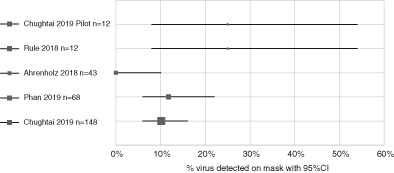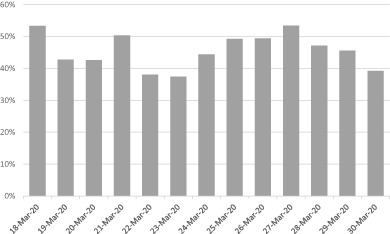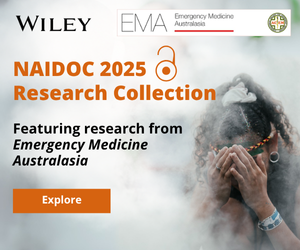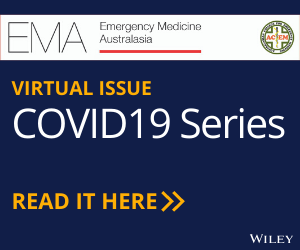Journal list menu
Export Citations
Download PDFs
Table of Contents
Mental health presentations to Christchurch Hospital Emergency Department during COVID-19 lockdown
- First Published: 20 October 2020
A retrospective, comparative cohort study in Christchurch Hospital, New Zealand, of mental health presentations to the ED during COVID-19 lockdown. During the COVID-19 lockdown, both overall ED presentations as well as mental health-related presentations decreased. There was a relative increase in overdoses and self-harm, particularly involving paracetamol and ibuprofen.
Informing emergency care for COVID-19 patients: The COVID-19 Emergency Department Quality Improvement Project protocol
- First Published: 07 April 2020
Clinical and ethical challenges for emergency departments during communicable disease outbreaks: Can lessons from Ebola Virus Disease be applied to the COVID-19 pandemic?
- First Published: 10 April 2020
COVID-19 and spinal cord injuries: The viewpoint from an emergency department resident with quadriplegia
- First Published: 19 April 2020
Challenge of managing patients with COVID-19 and acute behavioural disturbances
- First Published: 21 April 2020
Epidemiology and clinical features of emergency department patients with suspected COVID-19: Initial results from the COVID-19 Emergency Department Quality Improvement Project (COVED-1)
- First Published: 07 May 2020
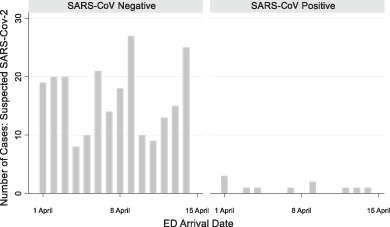
COVID-19 Emergency Department (COVED) Quality Improvement Project reports the findings of the Project's first 2 weeks. Among patients presenting to a tertiary ED with suspected COVID-19, only a small proportion had a positive test for SARS-CoV-2. Although the low incidence of SARS-CoV-2 positive cases currently precludes the development of predictive tools, the COVED Project demonstrates that the rapid establishment of an agile clinical registry for emergency care is feasible.
COVID-19 and toxicity from potential treatments: Panacea or poison
- First Published: 07 May 2020
CLUE: COVID-19 lung ultrasound in emergency department
- First Published: 09 May 2020
Managing healthcare worker well-being in an Australian emergency department during the COVID-19 pandemic
- First Published: 09 May 2020
COVID-19 and medical litigation: More than just the obvious
- First Published: 09 May 2020
SARS-CoV-2 testing and outcomes in the first 30 days after the first case of COVID-19 at an Australian children's hospital
- First Published: 10 May 2020
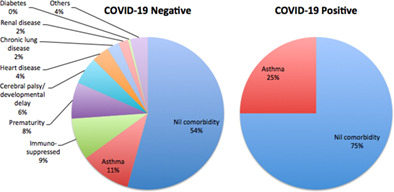
In this initial paediatric study of COVID-19 to emerge from Australia, over a 30-day period, the proportion of positive cases among those tested since our first positive case was very low at 4/433 (0.9%). None of the COVID-19 patients were admitted and all recovered in the community. A high proportion of the SARS-CoV-2 negative patients (125/429 [46%]) had comorbidities.
Re: SARS-CoV-2 testing and outcomes in the first 30 days after the first case of COVID-19 at an Australian children's hospital
- First Published: 23 May 2020
Informing emergency care for all patients: The Registry for Emergency Care (REC) Project protocol
- First Published: 28 May 2020
Emergency medicine's COVID future: Facing the triple challenge after flattening the curve
- First Published: 02 June 2020
Epidemiology and clinical features of emergency department patients with suspected COVID-19: Results from the first month of the COVID-19 Emergency Department Quality Improvement Project (COVED-2)
- First Published: 13 June 2020
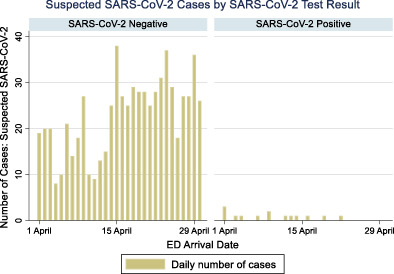
The volume of ED patients with suspected COVID-19 is increasing. Low numbers of positive cases precluded development of accurate predictive tools, but the COVED Project is fulfilling an important role in monitoring the burden of infection prevention and control requirements on the ED. The increasing number of patients meeting isolation criteria has the potential to impact on patient flow and may lead to ED overcrowding.
Temperature screening has negligible value for control of COVID-19
- First Published: 24 June 2020
What proportion of healthcare worker masks carry virus? A systematic review
- First Published: 24 June 2020
Patients presenting for hospital-based screening for the coronavirus disease 2019: Risk of disease, and healthcare access preferences
- First Published: 15 July 2020
Emergency department utilisation by vulnerable paediatric populations during the COVID-19 pandemic
- First Published: 23 July 2020




